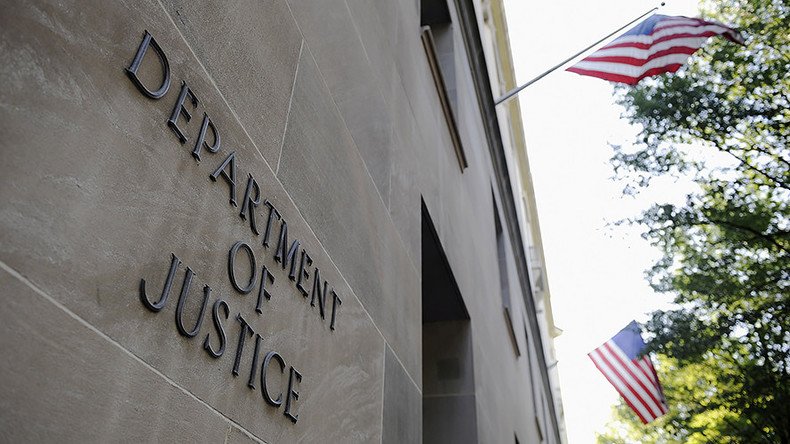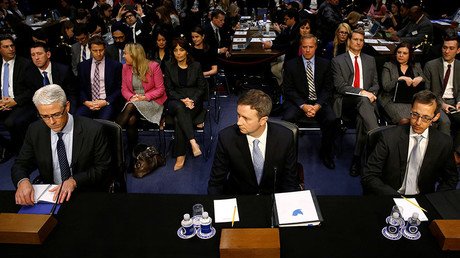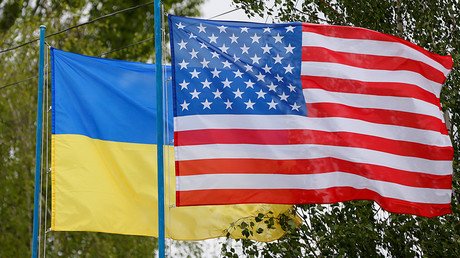Zero evidence, but... DOJ source says it ‘knows identities of Russians involved in DNC hack’

Just days after the Mueller investigation came up short on Kremlin involvement in the US presidential election, a source in the Department of Justice says the names of the Russians who hacked the DNC computers are known, according to The Wall Street Journal.
In yet another effort to make a connection between the Kremlin and Hillary Clinton’s loss in the November 2016 US presidential elections, the Wall Street Journal reported that the Justice Department “has identified more than six members of the Russian government involved in hacking the Democratic National Committee’s computers and swiping sensitive information.” The leaked materials divulged a mountain of unsavory information related to the Clinton campaign.
Although relations between the world’s two preeminent nuclear powers hang in the balance over the charges, the accusations about “Russian meddling” in the US democratic process come without the outlet offering any evidence to support the claims. This much was admitted by the authors of the WSJ article early in the report.
“US intelligence agencies have attributed the attack to Russian intelligence services, but haven't provided detailed information about how they concluded those services were responsible, or any details about the individuals allegedly involved,” authors Aruna Viswanatha and Del Quentin Wilber wrote.
Curiously, the US mainstream media has only shown interest in pursuing the “Russian hack” narrative regarding the release of thousands of the DNC’s emails, which were made public by WikiLeaks last year. Yet there were possible other suspects in this case, not least of all Seth Rich, former Voter Expansion Data Director, who was gunned down on July 10, 2016, in Washington DC.
WikiLeaks offered $20,000 reward for information regarding Rich’s death, while saying their offer should not be taken as implying Rich had been involved in leaking information to them. At the same time, however, WikiLeaks founder, Julian Assange, stated emphatically that Russia was not the source of the DNC data leak.
“We can say, we have said, repeatedly over the last two months that our source is not the Russian government and it is not a state party,” he said in an interview with Sean Hannity of Fox News.
Nevertheless, despite providing zero evidence to support these extremely severe charges, the Obama administration took the unprecedented step of expelling 35 Russian diplomats right before the New Year, and the changing of the presidential guard, as well as imposing sanctions.
Meanwhile, this is not the first time the Wall Street Journal has produced “evidence” allegedly incriminating Russia in some conspiracy, only to be debunked later.
In early October, the influential business newspaper reported that the Russian government used software, created by the Moscow-based company Kaspersky Lab, to “secretly scan computers around the world for classified U.S. government documents and top-secret information.”
Without identifying its sources, WSJ accused the respected anti-virus company of being aware of “an adjustment to its normal operations,” allowing the company to search for terms as broad as “top secret,” as well as the “classified code names of US government programs.”
These accusations were immediately refuted by Germany’s BSI federal cyber agency.
“There are no plans to warn against the use of Kaspersky products since the BSI has no evidence for misconduct by the company or weaknesses in its software,” BSI said in an emailed response to questions about the latest media reports. “The BSI has no indications at this time that the process occurred as described in the media.”
The unsubstantiated report by the WSJ comes as Robert Mueller’s investigation into “Russian interference” in the 2016 presidential election has failed to turn up any evidence.
Attempts by US investigators to find alleged Russian collusion with President Donald Trump’s campaign have led to the discovery of a “Ukrainian trail,” Russia's FM Sergey Lavrov said, suggesting Washington should now investigate Kiev’s role.
Over the past several years, Washington has attempted to blame any negative world events on Russia, “be it political protests, companies going bankrupt, or man-made disasters,” Lavrov said. “I’ve already heard we’ll soon be not only interfering in elections, but also manipulating the environment in order to create floods,” he added.














